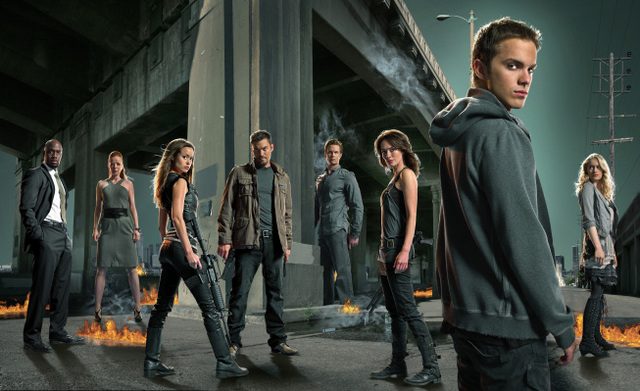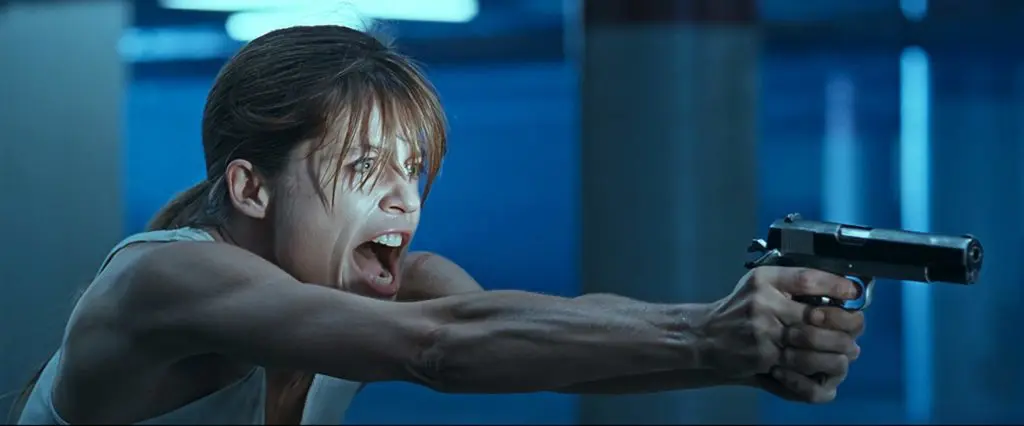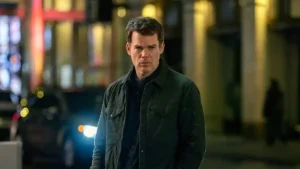Summary
In following up the 1991 classic, four blockbuster movies have proclaimed themselves to be the “Chosen One.” Unbeknownst to many, an overlooked TV series would trump them all with its clever writing, nuanced characters, and thematic resonance.
Few franchises have been as stubborn as Terminator. Ever since these sci-fi thriller films seemingly came full circle with a definitive ending in the groundbreaking second entry, studios have repeatedly tried to restart the series with diminishing returns. Terminator 3: Rise of the Machines undermined the cautiously optimistic message of its predecessors and was largely seen as just a goofy popcorn flick. I actually defended Terminator Salvation for its post-apocalyptic setting and attempt to bring back the pathos of the earlier films, but people were not pulled in enough by the story or characters to warrant the trilogy that it intended to set up.
Terminator Genisys also tried to set up a trilogy, but its time-traveling antics, uninspired script, bland direction, and subpar acting did little to win over audiences. Lastly, the recent Terminator: Dark Fate spat in the face of what came before and strived to update the formula with characters and concepts both new and old, but its lukewarm reception and colossal box office loss have once again axed plans for a sequel.
In the wake of so many big-screen failures, people seem to forget about a short-lived 2008 TV series by the name of Terminator: The Sarah Connor Chronicles. Canceled after two seasons on FOX, this show has since maintained a small yet loyal following. Why is that? Well, frankly, it’s the best thing to come out of the franchise since 1991. It forgoes blockbuster action in lieu of understated intrigue and heavy drama. It involves time travel, but it never lets this become a gimmick to overpower the narrative or characters. Most importantly, it adds to the world and characters in significant ways without disrespecting or forsaking its roots.

A huge part of that success stems from the television medium. Because it’s on network TV, the show obviously can’t pull off the spectacular action seen in the films. The budget just wouldn’t allow that on a weekly basis, so the set pieces here are notably more contained. Fortunately, this is a case where limitation breeds creativity. The writers ably demonstrate that the Terminator franchise doesn’t just have to be about bombastic action. Instead, they fashion an ongoing mystery that keeps you hooked from beginning to end, allowing the characters to breathe and adding more dimension to the mythos along the way.
Through this approach, the series frequently finds new and creative ways to stretch the concepts. For instance, this show often sees Terminators take advantage of their roles as infiltrators. You know how Arnold Schwarzenegger’s iconic robot settled down and got married in Dark Fate? Well, the writers here arrived at that idea first and handled it much better. Over the course of an episode, we learn about how a Terminator got married to a woman, subtly manipulated her actions through faux emotional support, and eliminated anyone in her way. This was all done to guide said woman toward finishing her secret project, which was to install a network of computerized security cameras at all the traffic lights in the city, effectively giving Skynet a set of eyes everywhere.
This is a great use of the Terminators, and you can definitely see the logic behind the decision. After all, they’ve already tried to undermine their enemies through time travel, so why wouldn’t they also use that technology to further preserve themselves, especially after the humans’ previous attempts to destroy them?
We also discover that Shirley Manson’s Terminator character killed and replaced Catherine Weaver, the CEO of a shady corporation. She then systematically expands the company, gathering metal and other resources for the coming war. Most importantly, however, she takes it upon herself and a select few others to “raise” the primitive AI that we assume is the foundation for Skynet. However, this is only half of her mission.
She also takes steps to maintain her cover, such as paying off the families of deceased employees or even consulting a therapist to improve her relationship with the real Weaver’s daughter. Naturally, this worked to ward off suspicion, enabling the machine to conduct its business as covertly as possible. Putting these things in deep cover for prolonged periods of time heightens the tension and allows them to fulfill their function as infiltrators more than they did in the films. Even in the decent entries, the Terminators never stayed hidden for long before going in with guns blazing.
This sense of subtlety extends to the humans. The characters here are written with a fitting sense of depth and pathos, and the long-form television format lets us see sides of them not touched on in the films. For example, Sarah has trouble relaxing even in a supposedly safe environment. She always feels the need to watch for danger, and the fact that she only has a finite amount of energy forces her to confront her own sense of weakness. This is further compounded by her impending cancer, cementing the fear that she doesn’t have much time left to prepare John for the end of the world.
Most importantly, she comes to realize that this stressful lifestyle of always being on the move and on edge will eventually result in John walking away. Whatever Sarah does, she feels like she will lose her son, and this constantly eats away at her. It also makes for a tragically engaging lead and a wonderfully nuanced portrayal by Lena Headey.
This fear is not unfounded, as the present-day John Connor is far from the confident commander that you’d expect. Not only is he utterly overwhelmed by the pressure of his destiny, but he also harbors a great deal of anger toward it. Since he was always being trained for survival, staying on the run, and learning about the coming apocalypse, he never got the chance to be a kid or experience any sense of safety or belonging.
He feels robbed of a normal life, and he resents his destiny because of that. At times, some of that resentment is even directed toward his mother for facilitating all of it. In a lesser story, this would simply come off as teen angst, but you can clearly tell that there’s more to it than that due in no small part to Thomas Dekker’s soulful intensity.
It’s also easy to understand why John takes any solace he can get. The character of Riley, a seemingly ordinary girl, fulfills that need. She provides an escape from the pressure of being a messiah, so he naturally keeps seeing her against Sarah’s wishes. Closer to home, however, he finds occasional comfort from Derek Reese, the brother of Kyle Reese from the original film.
His inclusion may seem contrived and out of left field at first glance, but he soon cements himself as a valuable addition and a gripping character in his own right. Not only does he harbor survivor’s guilt, a fierce hatred of the machines, and a constant search for purpose, but his uncle-nephew relationship with John provides a fresh character dynamic that benefits both parties. As a soldier with years of experience in the future war, Derek knows the value of coming up for air and maintaining your humanity. This insight gives John some much-needed perspective and even periodic happiness.

On the other hand, Derek is far from perfect, and Brian Austin Green doesn’t play him as such. He and the rest of the troops always looked to John for guidance, but the displaced soldier must now mentor the person who inspired him. As such, he has to pick and choose which bits of advice to dole out, as he too has trouble separating himself from the mission. It’s a tricky balancing act that’s conveyed capably by both the script and the performance.
Achieving that balance between relief and initiative remains a focal point throughout the series. It’s what separates us from the machines. Such conflict never gets old because it’s a never-ending battle. As the impending war looms closer and their enemies close in, the characters continue to feel less secure. They must keep both the machines and their own sanity in check.
The line between man and machine is further blurred by the behavior of the cyborgs. First, you have “Cameron,” the reprogrammed Terminator sent to protect John and prepare him for the trials ahead. As she spends more time in the past, she tries to better understand human behavior through observation and recreation. For instance, after she chases down a lead by posing as a ballet student, she can be seen practicing a dance. At another point, she attempts to “feel” the wind rushing through her toes during a routine drive. These touches make you question how advanced these robots are, and they also allow Summer Glau to really sell the character through her unnerving body language.
However, the innovations don’t stop at hobbies. Cameron has also been known to keep secrets from John and Sarah, making her own judgments about when to reveal them and how important they are to the mission and/or John’s growth. That is exceedingly unsettling. Even when this machine is apparently on your side, it still exercises a will of its own as the gap between organic and synthetic gradually lessens.
Nowhere is this ambiguity more pronounced than with “John Henry,” the AI that Weaver is working on. Brought to life by Garret Dillahunt, this machine is granted access to seemingly endless amounts of media and information over the Internet, and it consumes this material to teach itself about human culture and social norms. Steering this education is Richard T. Jones’s James Ellison, a former FBI agent desperately seeking purpose after learning of the future war. He finds that purpose through his religious and philosophical conversations with the AI.
This plotline is basically an extension of the arc from Terminator 2. John also stressed that the T-800 should not kill people in that film, but he never gave a concrete reason why. While you could argue that the reasoning becomes clear without words throughout the film, Ellison providing a belief-based foundation for such a rule seems like the next logical step in advancing the lore.
Teaching a machine that life is sacred cements the fact these are neither mindless automatons nor merciless murder bots, and it becomes even more complex when John Henry has his own brush with “death” in the form of a shutdown. He begins to see himself and his fellow AIs as “God’s children” and worthy of the same protection. It raises questions about whether these Terminators, long thought to be heartless boogeymen, are actually worthy of preservation and even empathy on some level. Don’t forget: we were told in the second film that Skynet only fought back when the humans tried to shut it down for fear of its self-awareness.
All of this perfectly exemplifies why Terminator: The Sarah Connor Chronicles is so successful in its execution. It uses the pre-established tools at its disposal, crafts something new and engrossing, and pays heed to the thoughtful reflection and complex themes seen in the first two movies. At its core, it’s still about the value of humanity, combatting destiny, and the preservation of life. As we peel back the layers of these characters and ideas, we’re constantly left to contemplate just what makes us different from the machines. Of all the products claiming to be the true successor to James Cameron’s work, this unassuming series distinguishes itself as the most worthy.




